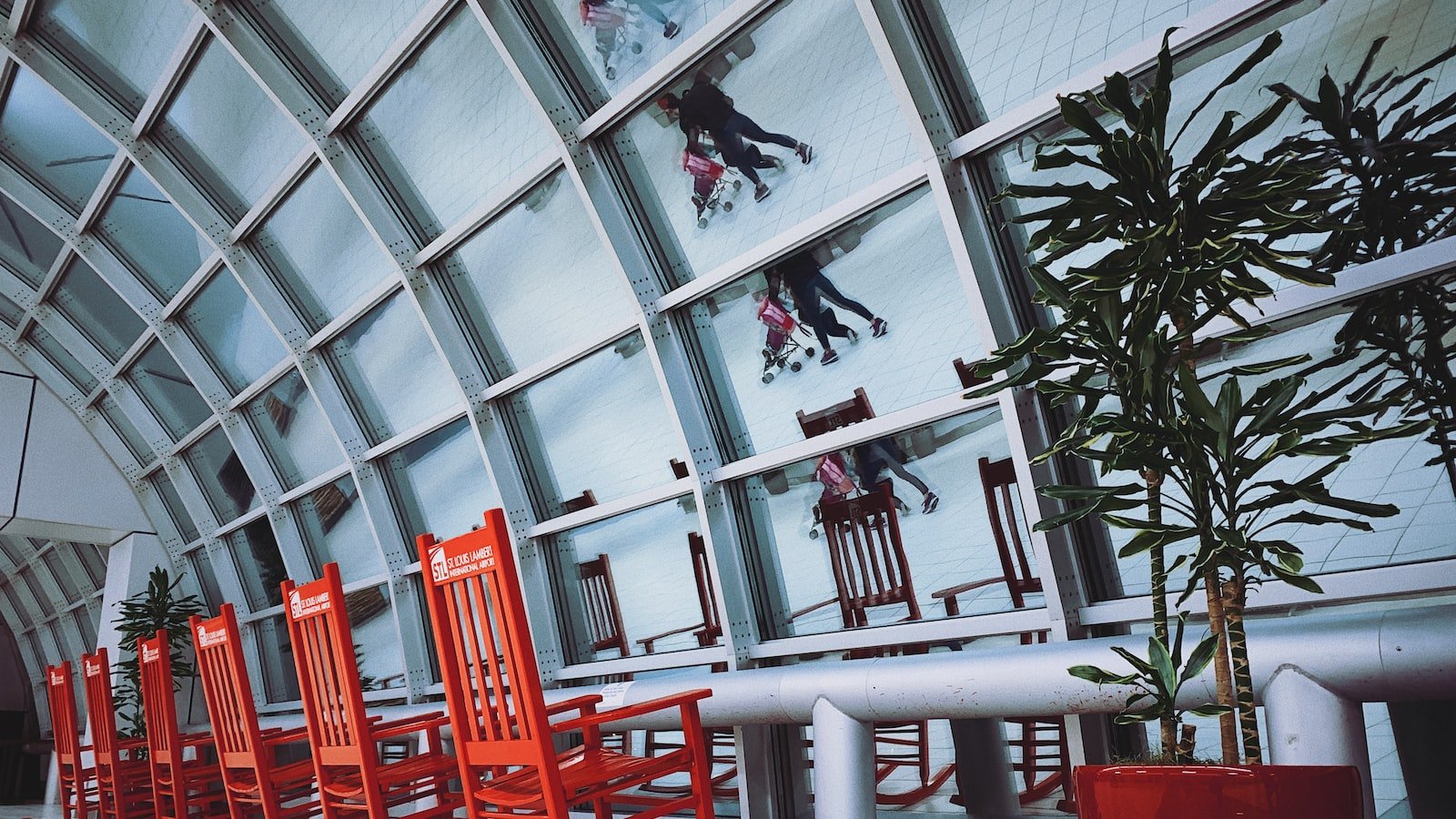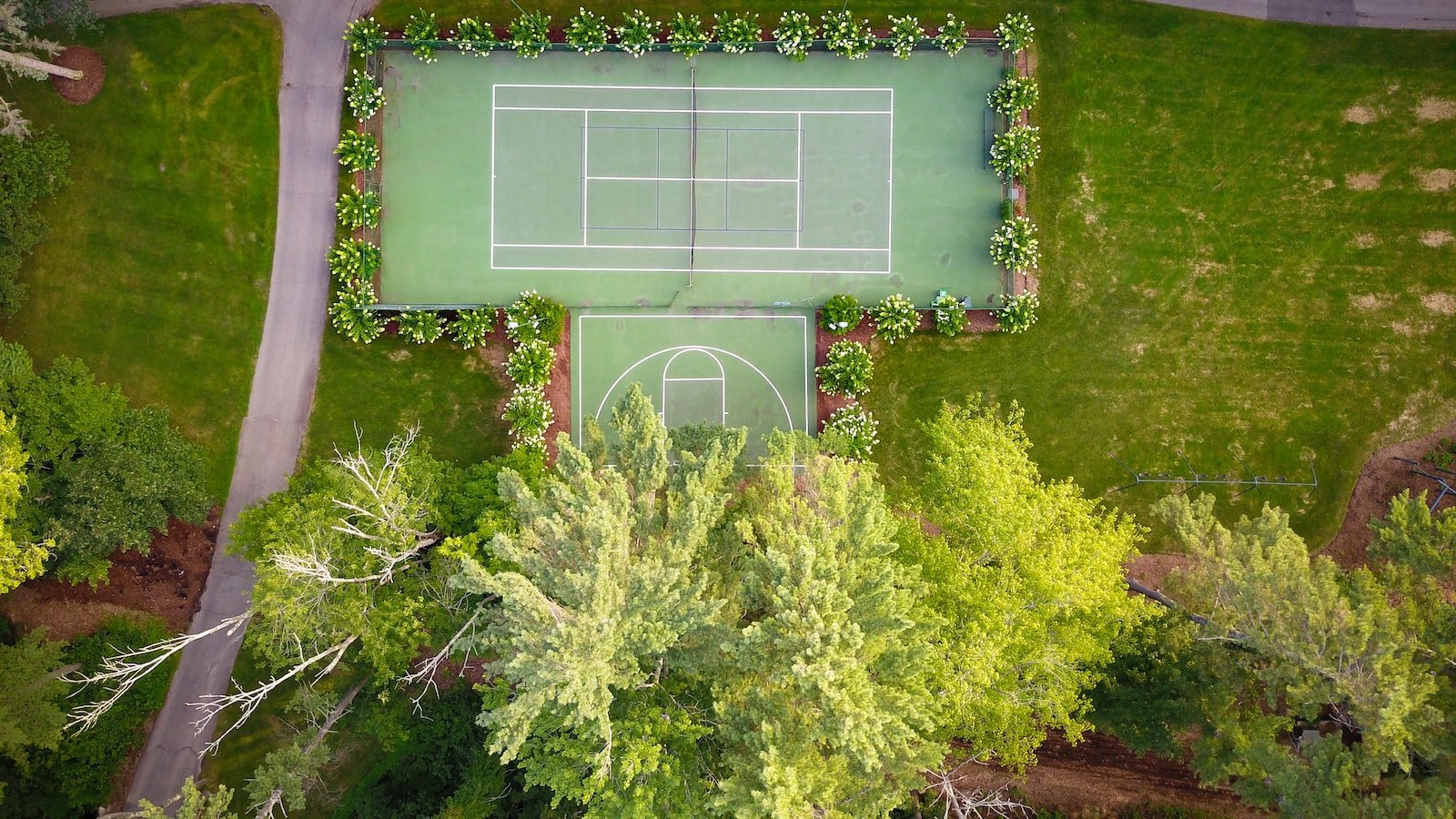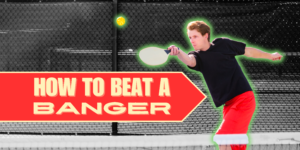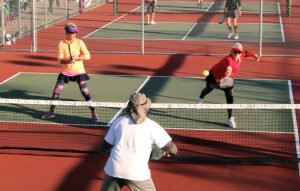The deafening thwack of the paddle striking the ball, the rapid volley across the net, and the pulsating energy on the court—pickleball, the fastest-growing sport in America, has captured the hearts of players young and old alike. But amidst this thunderous symphony of racquets and balls, a strategic dance unfolds, demanding distinct skills and tactics. Are you ready to take your pickleball game to the next level? Whether you find yourself enticed by the exhilarating pace of singles play or drawn to the collaborative teamwork of doubles, mastering the nuances of each format is the key to becoming a formidable opponent on the court. Join us as we delve into the finer details of training for doubles versus singles in pickleball, unlocking the secrets to outsmarting your adversaries and embracing the unique thrill of this addictive sport. It’s time to lace up your sneakers, grip your paddle, and start this gripping journey towards pickleball greatness.
Table of Contents
- Preparing for Doubles: Understanding the Key Differences in Pickleball Strategy
- Developing Effective Communication and Coordination with Your Doubles Partner
- Mastering the Art of Shot Placement: Strategies for Doubles and Singles in Pickleball
- Finding the Right Balance: Adapting Your Gameplay for Doubles vs. Singles
- Enhancing Your Net Game: Techniques for Doubles and Singles in Pickleball
- Q&A
- Key Takeaways

Preparing for Doubles: Understanding the Key Differences in Pickleball Strategy
Understanding the Key Differences in Pickleball Strategy for Doubles
When it comes to playing pickleball doubles, there are some key differences in strategy compared to singles matches. While the overall objective remains the same – to outscore your opponent and win the game – there are certain tactics, techniques, and team dynamics that you need to master in order to excel in doubles play.
Here are some important aspects to consider:
- Communication: In doubles, effective communication between teammates is crucial. You need to constantly coordinate your movements, share information about the opponents’ positions, and strategize on the fly. Clear and concise communication can give you a competitive edge, allowing you to make split-second decisions and execute effective shots.
- Teamwork: Doubles play requires a strong sense of teamwork. Your partner becomes your ally and you must work together to cover the court, anticipate each other’s moves, and seamlessly switch positions. Knowing your partner’s strengths and weaknesses will help you create strategies that maximize your team’s performance.
- Placement: Unlike singles, where you have the entire court to work with, doubles requires a more strategic approach to shot placement. You need to aim for the open areas on the court, exploit your opponents’ weaknesses, and create opportunities for your partner to attack. Smart placement and well-executed shots can result in confusion and miscommunication between your opponents, increasing your chances of scoring points.
By understanding these key differences and incorporating them into your gameplay, you can elevate your pickleball doubles strategy and dominate the court. Remember, practice and experience are essential for honing your skills, so get out there, communicate effectively, work as a team, and aim for strategic shot placement to secure victory in your doubles matches.

Developing Effective Communication and Coordination with Your Doubles Partner
When it comes to playing doubles in any sporting event, effective communication and coordination with your partner are key to achieving success on the court. Whether you are playing tennis, badminton, or even pickleball, having a strong connection with your doubles partner can make all the difference in your performance.
To enhance your communication and coordination skills, here are some valuable tips:
- Establish a Game Plan: Before stepping onto the court, sit down with your partner and discuss your strategy. Outline your strengths, weaknesses, and set goals for the match. Having a clear game plan will help both of you understand each other’s roles and responsibilities.
- Use Non-Verbal Communication: Communication isn’t limited to just words. Non-verbal cues such as hand signals, eye contact, and body language can be vital in swiftly conveying your intentions to your partner. Create a system of signals that is unique to both of you, allowing for a deeper understanding of each other’s moves and tactics.
- Practice Active Listening: Effective communication involves not only expressing your thoughts but also listening to your partner’s input. Actively engage in listening by maintaining eye contact, nodding, and acknowledging their ideas. By being attentive to each other’s suggestions, you will foster a supportive and collaborative environment.
- Provide Constructive Feedback: In the heat of the game, tensions can rise. However, it’s crucial to provide constructive feedback to your partner to help improve their performance. Remember to communicate in a respectful and supportive manner, focusing on specific actions rather than personal criticism.
- Trust and Encourage Each Other: Building trust with your doubles partner is paramount. Trust that they will make the right decisions and give their best effort. Encourage each other during the game, boosting morale and maintaining a positive mindset even in challenging situations. This bond will create an unbreakable foundation for effective communication and coordination.
By implementing these strategies and consistently practicing together, you and your doubles partner will develop a seamless connection on the court. Together, you will be able to anticipate each other’s moves, cover each other’s weaknesses, and ultimately achieve greater success as a doubles team.

Mastering the Art of Shot Placement: Strategies for Doubles and Singles in Pickleball
In the exciting game of pickleball, shot placement is a crucial skill that can make all the difference in your success on the court. Whether you are playing doubles or singles, understanding the strategies behind effective shot placement can help you outsmart your opponents and gain the upper hand.
Strategies for Doubles:
- Communication: Good communication with your partner is key in doubles. Develop a system of signals or calls to ensure you both know the intended shot placement and avoid running into each other on the court.
- Target the Gaps: Look for the spaces between your opponents. Aim your shots to exploit these gaps, putting pressure on their positioning and forcing them to cover more ground.
- Alternate Shot Types: Mix up your shots between fast and hard hits, soft floater shots, and well-placed lobs. By keeping your opponents guessing, you can disrupt their rhythm and gain a competitive advantage.
Strategies for Singles:
- Control the Point: In singles, shot placement is even more important as you have a larger area to cover on your own. Focus on hitting to areas that force your opponent to move quickly, making it difficult for them to set up strong returns.
- Work the Corners: Aim your shots to the corners of the court to stretch your opponent’s reach, making it harder for them to return the ball with power and accuracy.
- Change the Pace: Vary your shot speed and spin to keep your opponent off balance. Mix powerful drives with softer dinks or drops to force errors and maintain control.
Mastering shot placement takes practice and strategy, but with these techniques in your arsenal, you’ll be well on your way to becoming a pickleball pro. Experiment with different tactics, adapt to your opponent’s playing style, and always stay one step ahead on the court!
Finding the Right Balance: Adapting Your Gameplay for Doubles vs. Singles
When it comes to tennis, there’s a significant difference between playing doubles and singles. Each game requires a different set of skills and strategies to be successful on the court. To truly excel, you need to find the right balance and adapt your gameplay accordingly.
In doubles, communication and teamwork are paramount. Unlike singles, where you’re solely responsible for your side of the court, doubles involves coordinating with your partner to cover a larger area. It’s crucial to establish effective communication and develop a strategy that optimizes each player’s strengths. Constant communication can be the difference between a well-coordinated, dominant team and one that struggles to keep up.
On the other hand, singles tennis is more focused on individual play and self-reliance. As the only player on your side of the court, you have complete control and responsibility for every shot. Your ability to move swiftly and cover a wider range of the court becomes critical. Singles also requires a strong mental game, as you must make split-second decisions and adjust your strategy based on your opponent’s strengths and weaknesses.
Adapting Your Gameplay: Key Considerations
To adapt your gameplay effectively, keep the following considerations in mind:
- Shot Selection: In doubles, shots that focus on angles, lobs, and low-volley shots tend to be more effective, as they exploit the open spaces on the court. In singles, focusing on consistent shots with depth and accuracy can put your opponent under pressure.
- Movement: Doubles requires players to move laterally and maintain a balanced position to cover the whole court effectively. In singles, the ability to move quickly and change directions swiftly is crucial, as you face more one-on-one situations.
- Mental Approach: Doubles often involves quick decision-making, adaptability, and supportive communication with your partner. In singles, maintaining a strong mental game, staying focused, and adjusting your strategy based on your opponent’s weaknesses can give you the upper hand.
By understanding the nuances of doubles and singles tennis and making the necessary adaptions to your gameplay, you’ll be able to maximize your performance and dominate the court regardless of the game you’re playing. It’s all about finding the right balance between teamwork and self-reliance to take your tennis skills to the next level!
Enhancing Your Net Game: Techniques for Doubles and Singles in Pickleball
When it comes to playing pickleball, mastering your net game is essential for success in both doubles and singles matches. By honing your techniques at the net, you can dominate the game and put your opponents on their heels. Here are some valuable tips to enhance your net game:
- Stay low and be proactive: Maintaining a low and ready position is crucial to effectively control the net. Keep your knees slightly bent and your weight forward, ready to pounce on any opportunity. Anticipate your opponent’s shots and try to intercept them with quick reflexes.
- Vary your shots: To keep your opponents guessing, mix up your shots at the net. Utilize both soft and hard shots, directing the ball deep into the corners or placing it close to the net. This strategic variety will make it difficult for your opponents to anticipate your next move.
- Communicate with your partner: If you’re playing doubles, effective communication with your partner is key. Constantly talk and coordinate your movements to ensure solid coverage of the court. Discussing strategies like who will take the middle or cover certain sectors will help maintain a strong net presence.
- Use the “pop-up” shot: When your opponents hit a low shot, take advantage of their defensive position by using a “pop-up” shot. Extend your arm fully and lift the ball high over the net, forcing your opponents to backtrack and giving you a chance to gain control of the point.
Mastering the net game in pickleball requires practice, precision, and teamwork. By incorporating these techniques into your gameplay, you’ll be able to dominate the net and become a formidable force on the pickleball court.
Q&A
How is training for doubles in pickleball different from singles?
Training for doubles in pickleball requires a focus on teamwork, communication, and strategic positioning with your partner. Singles play, on the other hand, emphasizes individual skills such as agility, quick reflexes, and shot placement.
What are the key strategies for doubles in pickleball?
In doubles, it’s crucial to communicate and coordinate with your partner to cover the court and anticipate shots. Staying in your assigned position, using effective cross-court shots, and setting up your partner for success are key strategies to master.
What skills should I focus on when training for doubles?
When training for doubles, concentrate on developing efficient footwork, teamwork, and effective shot placement. Work on your ability to communicate with your partner, strategize together, and quickly switch from offense to defense.
How can I improve my coordination with my doubles partner?
Improving coordination in doubles can be achieved through regular practice sessions together. Focus on understanding each other’s strengths and weaknesses, developing hand signals or calls, and mastering the art of anticipation to build a strong partnership.
Are there any specific drills I can do to enhance my doubles performance?
Various drills can enhance your doubles performance. Utilize drills that require constant communication, like the “partner rally” where you alternate shots with your partner, or the “cross-court dinking” drill to improve shot accuracy and positioning.
Is it important to adjust my playing style when switching between singles and doubles?
Adapting your playing style between singles and doubles is crucial. While singles focuses on individual play, doubles requires cooperative play. Be prepared to adjust shot selection, court coverage, and communication techniques to optimize your performance in each format.
Should I focus on consistency or power when playing doubles?
Consistency is key when playing doubles. While power can be beneficial in certain situations, it’s more important to focus on consistent shot placement, to avoid unforced errors, and to keep the ball in play, allowing your partner to support your strategy.
How can I effectively communicate with my doubles partner on the court?
Clear and concise communication is essential in doubles. Develop a system of verbal cues, hand signals, or predetermined shots to indicate your intentions. Regularly discuss strategies and adjust them accordingly to maximize efficiency and prevent miscommunication.
What should I prioritize when training for both singles and doubles?
When training for both formats, it’s important to strike a balance. Focus on developing individual skills, such as shot selection and agility, for singles, while also dedicating time to drills and practice sessions that enhance communication, positioning, and teamwork for doubles.
Key Takeaways
As the final echoes of your triumphant pickleball rally fade into the distance, your training journey comes to an end. We hope this article has provided you with a treasure trove of insights into the captivating world of pickleball doubles and singles.
Whether you choose to dance gracefully across the court with a partner or revel in the independence of a one-on-one showdown, remember that training is the key to unlocking your full pickleball potential. Embrace the unique dynamics of each game, the subtle dance of strategy, and the adrenaline-fueled battles that await you.
Now armed with a wealth of knowledge, it’s time to embark on your own path to pickleball excellence. Dive into the doubles realm, where teamwork and communication form an unbreakable bond. Or perhaps you find solace in the solitude of singles, where your skills are tested to their limits.
But always remember, success knows no boundaries. Whether you’re soaring across the court like an ancient deity or landing gracefully with the finesse of a feather, the true essence of pickleball lies in the joy and camaraderie it brings.
Sharpen your paddle, fuel your determination, and embrace the challenge that awaits. May your footwork be swift, your shots precise, and your passion ignite the court. As you continue your pickleball odyssey, remember that the journey itself is just as important as the destination.
So, fellow pickleball enthusiasts, let the thrilling arena of doubles or the exhilarating domain of singles be your stage for greatness. Train, practice, and embrace the unique strategies and skills that define each game. Unleash the pickleball maestro within, and watch as your game evolves, defying the very limits of possibility.
Now, with your heart racing and determination ablaze, step onto the court. May the echoes of your triumphant rallies reverberate throughout the land, as you etch your name among the legends of pickleball.
As an affiliate, my content may feature links to products I personally use and recommend. By taking action, like subscribing or making a purchase, you’ll be supporting my work and fueling my taco cravings at the same time. Win-win, right?
Want to read more? Check out our Affiliate Disclosure page.




